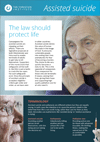Teenage girls and young women should stockpile the morning-after pill at home, according to new draft guidance by the Government’s health body.
The morning-after pill can cause an early stage abortion, and critics say the proposal fails to consider the emotional baggage caused by underage sex.
The draft guidance, issued by the National Institute for Health and Clinical Excellence (NICE), also recommends that teenagers should be able to get free condoms “in a range of types and sizes”.
Guidance
NICE argues that making contraceptives and the morning-after pill even easier to access will help to reduce the number of teenage pregnancies.
But Norman Wells, Director of the Family Education Trust, criticised the scheme, saying: “The draft guidance is clearly more interested in getting young people to use contraception than it is in discouraging them from engaging in sexual activity in the first place.
He added: “Confidential contraceptive schemes are simply giving children under the age of consent the green light to experiment sexually.
“The result is more schoolgirl mums, spiralling rates of sexually transmitted infections, and growing numbers of young people carrying emotional baggage into adulthood that will make it more difficult for them to build a truly intimate, trusting and stable marriage later on.”
Advance
The NICE draft guidance recommends that doctors, nurses and pharmacies should “ensure all young women are able to obtain free emergency hormonal contraception [the morning-after pill], including advance provision”.
It also suggests that contraception and sexual health services should be established at “convenient, accessible locations such as city centres, colleges and schools”.
Dr Gillian Leng, Deputy Chief Executive of NICE, defended the recommendations, saying: “This draft guidance responds to a real need to improve existing contraceptive services, making it easier for young people, especially the most disadvantaged, to get the right information, advice and treatment at the right time.”
Doubt
However, a spokesman for the Department of Health said: “Emergency contraception should be for emergencies only – it’s better to use a regular method of contraception than to rely on emergency contraception, whether it’s supplied before or after unprotected sex.”
The spokesman added: “The Department will review this draft guidance very carefully, and respond to NICE with our comments.”
Abortion
The draft guidance, which is being published today, comes in the wake of the nation’s first ever televised advert for abortion services, which aired on Channel 4 last night.
Abortion provider Marie Stopes International claim the commercial, which will run until the end of June, will help women to make a more informed choice about their pregnancies and sexual health.
But pro-lifers have blasted the ad, warning that it “trivialises human life”.
Character
Last week it was revealed that health chiefs in Southampton had created a children’s character, Charlie Condom, to promote condoms to 13-year-olds.
But critics warned that the scheme would simply normalise underage sex.
Ron Clooney, from the teachers union NASUWT, criticised the plans, saying: “This method, where underage impressionable teenagers can get condoms so openly, condones the idea of underage sex.
“Having a giant condom launching this is ridiculous. This needs to be treated as a serious subject. No amount of silly characters with condoms on their heads are going to cure the issue.”


